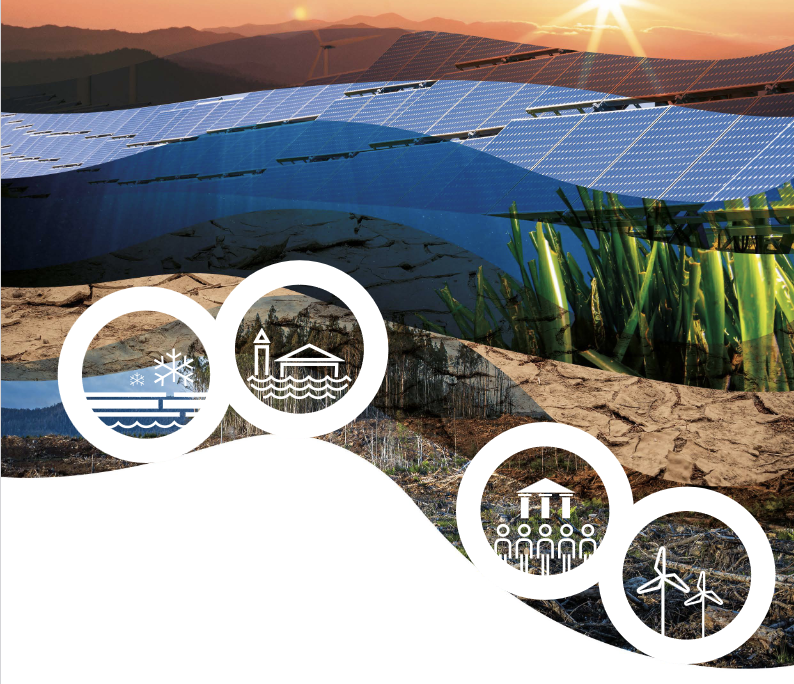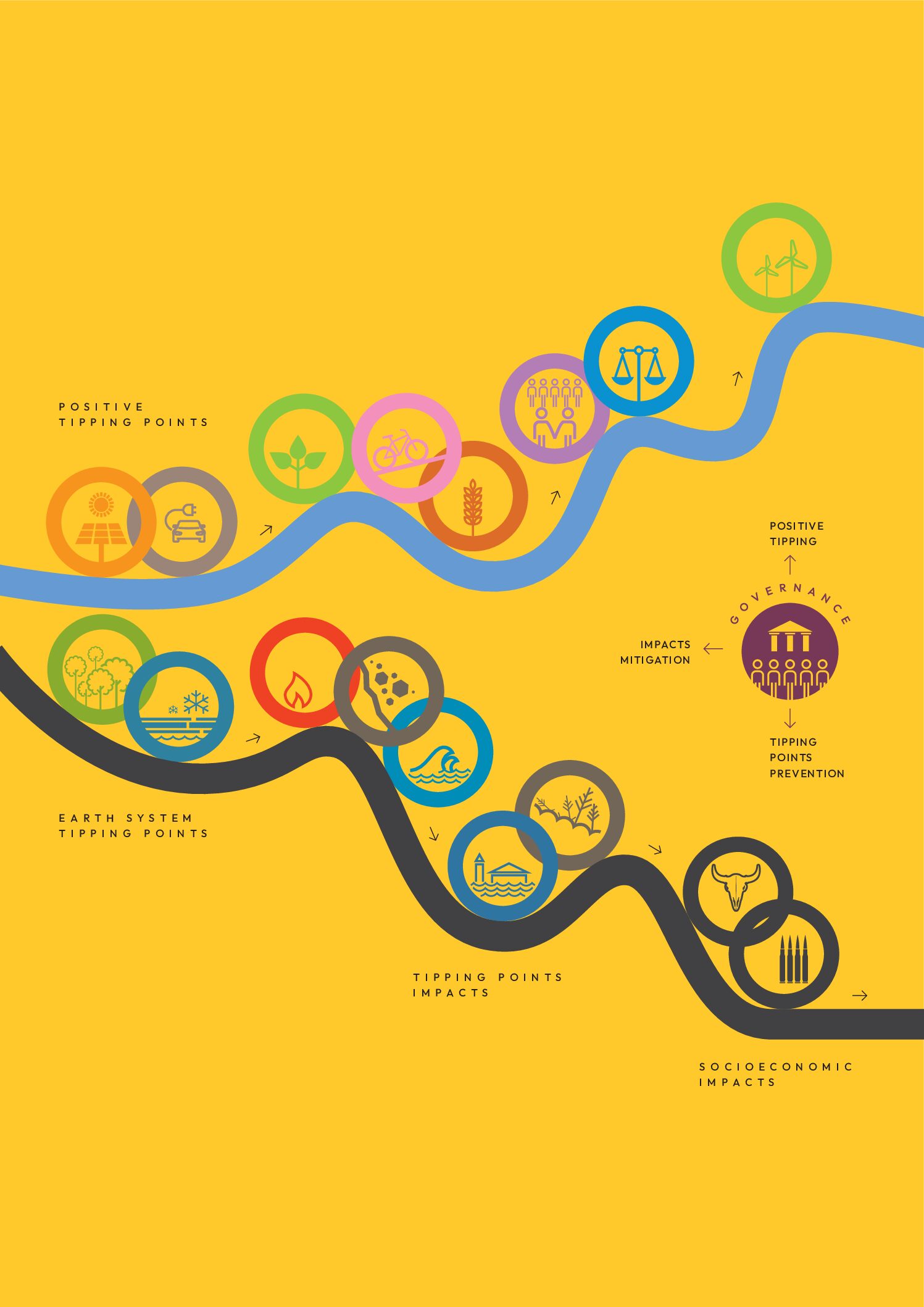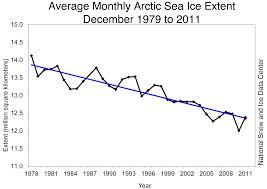tipping points
Arctic Futures: White Shield or Blue Economy
Multiplying proposals for ice restoration face geopolitical obstacles
Ice-thickening. Glacier curtains. Cloud brightening… Proposals for Arctic climate interventions seem to be multiplying by the day. The changing climate is not only shrinking ice caps and ice sheets, but also bringing much greater than average temperature rises in polar regions. These impacts particularly disrupt the lives and livelihoods of Arctic Indigenous Peoples. Arctic impacts …
Continue reading “Arctic Futures: White Shield or Blue Economy”
CONTINUE READINGEarth system tipping events now seem inevitable – what does this mean for climate governance?
Building meaningful earth system governance creates multiple new research challenges
A tipping point is a system threshold beyond which change becomes self-perpetuating until a qualitatively different stable state is reached. For example a rainforest turns into a grassland, or an ice sheet melts completely. Such shifts are non-linear, and practically irreversible. Fears that growing human impacts might push aspects of the global climate past such …
CONTINUE READINGRipped from the Headlines
This is not, unfortunately, an April Fool’s joke. Not at all.
Here’s a selection of recent headlines, which I only wish I had made up for April Fool’s Day. “Earth just had its hottest year ever recorded — by far.” — NBC “Hurricanes are getting so intense, scientists propose a Category 6”— Washington Post “Parts of Amazon rainforest could tip toward collapse by 2050, study warns.” …
Continue reading “Ripped from the Headlines”
CONTINUE READINGHow much should we worry about climate tipping points?
A new report suggests climate tipping events may be inevitable, and urges transformative approaches to climate policy
It’s hard to keep up with the deluge of climate news around COP28. Climate damages are growing. Carbon budgets are running out. Temperature records are being re-written. Despite new pledges, climate action remains hugely insufficient and grossly unfair. And the world may be unable to avoid passing critical climate tipping points. That last comes from …
Continue reading “How much should we worry about climate tipping points?”
CONTINUE READINGCost-Benefit Analysis and Deep Uncertainty
How should agencies take into account “the things we know we don’t know”?
Since 1981, cost-benefit analysis (CBA) has been at the core of the rule making process. OIRA, the so-called “regulatory czar” in the White House, must approve every significant regulation based on a review of its CBA. But CBA has had a major blind spot. It embodies techniques for analyzing possible harmful outcomes when the probability …
Continue reading “Cost-Benefit Analysis and Deep Uncertainty”
CONTINUE READINGIs Climate Change a Bulldozer or Bullet Train?
How fast will climate change happen? Maybe faster than we expect, according to the National Academy of Sciences.
We’re in the early stages of climate change — just how much depending in large part on whether we control our emissions. But how quickly will this happen? Is it a bulldozer we can dodge or a bullet train that’s too fast to avoid? That makes a lot of difference in terms of our ability …
Continue reading “Is Climate Change a Bulldozer or Bullet Train?”
CONTINUE READINGMayans! Apocalypse! Climate Change!
Mayan apocalypse: panic spreads as December 21 nears Fears that the end of the world is nigh have spread across the world with only days until the end of the Mayan calendar, with doomsday-mongers predicting a cataclysmic end to the history of Earth. That’s from a British newspaper, the Telegraph, but you only have to Google …
Continue reading “Mayans! Apocalypse! Climate Change!”
CONTINUE READINGHow useful are “planetary boundaries”?
The latest edition of Nature has an interesting article and accompanying commentaries (freely available here; longer version of the principal article here) on the concept of boundaries, or limits, or thresholds if you prefer, for the planet. The principal article, which has 27 authors led by Johan Rockstrom of the Stockholm Resilience Center, is called …
Continue reading “How useful are “planetary boundaries”?”
CONTINUE READINGClimate news gets worse
On Science Insider (subscription required), Eli Kintisch reports on two new scientific studies that together spell bad news for our ability to address the greenhouse gas problem. The first is a computer simulation of the effect on global CO2 levels if developed nations adopt the most aggressive greenhouse gas emission reductions they have proposed or …
Continue reading “Climate news gets worse”
CONTINUE READING









